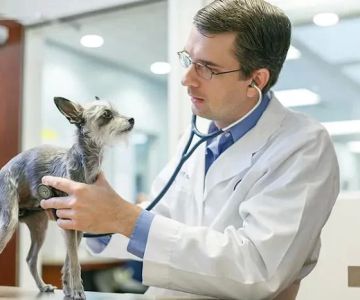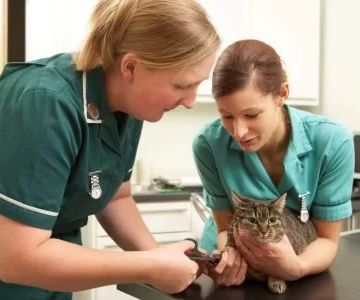- 1-Understanding-What-Is-DVM-in-Veterinary-Medicine
- 2-The-Path-to-Earning-a-Doctor-of-Veterinary-Medicine-Degree
- 3-Career-Opportunities-and-Roles-for-DVM-Holders
- 4-Real-Stories-from-DVM-Professionals
- 5-How-to-Choose-the-Right-Veterinary-Program
1. Understanding What Is DVM in Veterinary Medicine
The acronym DVM stands for Doctor of Veterinary Medicine, a professional degree awarded to those who have completed specialized education in veterinary medicine. But what is DVM in veterinary medicine beyond the degree? Essentially, it signifies a qualified veterinarian licensed to diagnose, treat, and prevent illnesses in animals.
This degree embodies a combination of medical knowledge, practical skills, and ethical standards essential for animal healthcare professionals.
1.1 The Role of a DVM
Veterinarians with a DVM are trained to handle diverse responsibilities ranging from routine check-ups and vaccinations to complex surgeries and emergency care. Their expertise extends to advising pet owners and contributing to public health through zoonotic disease control.
1.2 DVM as a Gateway to Specialized Fields
Holding a DVM opens doors to specialized areas such as veterinary surgery, dermatology, internal medicine, and research, offering varied career pathways within veterinary medicine.
2. The Path to Earning a Doctor of Veterinary Medicine Degree
Obtaining a DVM involves rigorous academic and clinical training, typically spanning four years after completing prerequisite undergraduate studies.
2.1 Core Curriculum and Clinical Experience
The program covers anatomy, physiology, pharmacology, pathology, and more, combined with hands-on clinical rotations that prepare students for real-world veterinary practice.
2.2 Licensing and Certification
Graduates must pass national and state examinations to become licensed veterinarians, ensuring they meet professional standards before practicing independently.
3. Career Opportunities and Roles for DVM Holders
A DVM degree equips graduates for numerous roles in private practice, academia, government, and industry.
3.1 Private and Specialty Clinics
Many veterinarians operate or work in clinics providing medical care for pets, livestock, or exotic animals.
3.2 Research and Public Health
DVM holders contribute to developing vaccines, studying animal diseases, and improving food safety standards.
3.3 Emerging Fields
Advances in veterinary oncology, rehabilitation, and alternative therapies offer expanding opportunities for DVM professionals.
4. Real Stories from DVM Professionals
Dr. Sarah Mitchell, a practicing veterinarian for over a decade, recalls her journey: “Understanding what DVM in veterinary medicine means shaped my career. The degree challenged me intellectually and emotionally, but ultimately it gave me the tools to make a difference in animals’ lives.”
Another inspiring story is of Dr. James Lee, who used his DVM to pioneer wildlife conservation efforts, demonstrating the degree’s broad impact beyond traditional clinics.
5. How to Choose the Right Veterinary Program
Selecting a veterinary school is a crucial step towards earning your DVM. Consider factors such as curriculum quality, faculty expertise, research opportunities, and clinical facilities.
For aspiring veterinarians eager to understand what is DVM in veterinary medicine and to embark on a fulfilling career, exploring accredited programs and seeking guidance from professionals can be invaluable.
Ready to dive deeper into the world of veterinary medicine? Explore comprehensive guides and trusted resources on platforms that specialize in veterinary education to make informed decisions about your future and secure the best tools and materials to support your journey toward earning your DVM.











